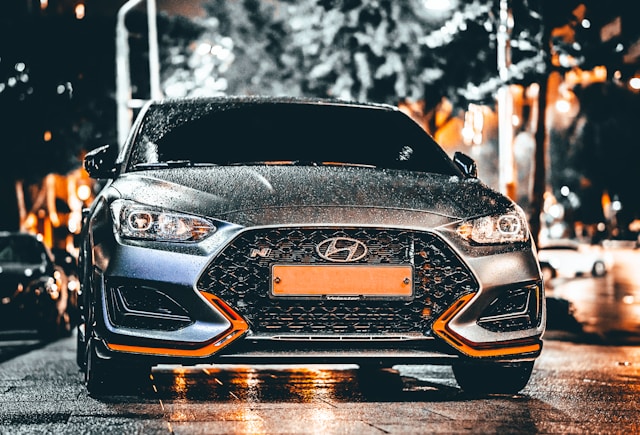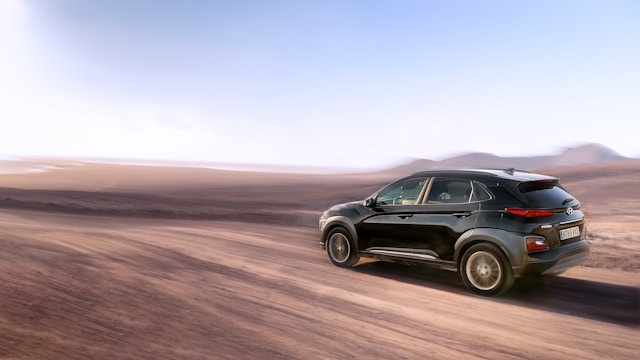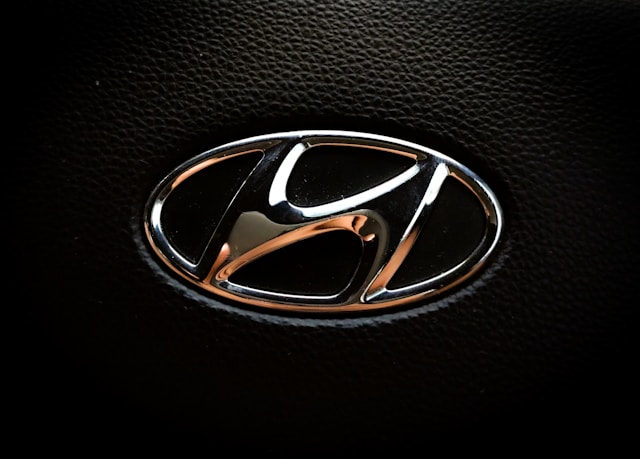When it comes to creating a successful brand, few companies have managed to do so as effectively as Hyundai. Once seen as a budget option with little to offer beyond affordability, Hyundai has transformed into a global powerhouse known for innovation, quality, and customer satisfaction. This transformation didn’t happen overnight but was the result of a carefully crafted marketing strategy that has evolved over decades. In this blog post, we will explore Hyundai’s marketing journey, focusing on key campaigns and strategies that have contributed to its rise.
Building a Foundation: The Early Years
In the 1980s, Hyundai was primarily recognized as a maker of inexpensive cars. While this market positioning allowed the company to gain a foothold in the highly competitive automotive industry, it also came with a significant downside: perceptions of poor quality. To shift these perceptions, Hyundai embarked on a mission to improve its product line and, more importantly, its brand image.

Quality Comes First: The Assurance Campaign
One of Hyundai’s most notable marketing moves was the introduction of the “Hyundai Assurance” program in 2009. This campaign was revolutionary in its simplicity and effectiveness. At a time when the U.S. was grappling with a severe economic recession, Hyundai made a bold promise: if you bought a Hyundai and lost your job within a year, you could return the car without penalty.
This initiative, coupled with an industry-leading 10-year/100,000-mile warranty, did more than just reassure potential buyers; it positioned Hyundai as a brand that genuinely cared about its customers. This campaign directly addressed consumer fears and highlighted Hyundai’s confidence in the quality of its vehicles. The result was a significant increase in sales and a boost in customer trust.
The Shift to Innovation: Blue Drive and Eco-Friendly Technologies
As environmental concerns became more prominent, Hyundai recognized the need to pivot towards more sustainable solutions. Enter the Blue Drive initiative, a comprehensive strategy aimed at reducing the company’s environmental footprint through the development of hybrid, electric, and hydrogen fuel cell vehicles.
One of the standout products from this initiative was the Hyundai Ioniq, the first car to offer three different powertrain options: hybrid, plug-in hybrid, and fully electric. The Ioniq’s marketing campaign emphasized its versatility and eco-friendliness, appealing to a broad range of environmentally conscious consumers.
Hyundai also launched the NEXO, a hydrogen fuel cell SUV, positioning it as the future of green transportation. The marketing around the NEXO focused on its zero-emissions capabilities and advanced technology, aligning with the growing consumer demand for sustainable products.

Connecting with Customers: Digital and Experiential Marketing
In the digital age, Hyundai has effectively leveraged online platforms to engage with customers. Recognizing the importance of a strong online presence, Hyundai invested in a comprehensive digital marketing strategy that included social media, content marketing, and influencer partnerships.
One notable example is the “Shackleton’s Return” campaign, which documented the journey of Patrick Bergel, the great-grandson of explorer Sir Ernest Shackleton, as he retraced his ancestor’s epic Antarctic expedition in a modified Hyundai Santa Fe. This campaign was not only visually stunning but also emotionally resonant, highlighting the Santa Fe’s durability and the spirit of adventure. The campaign garnered millions of views on YouTube and significant engagement on social media, showcasing Hyundai’s ability to create compelling content that resonates with a global audience.
Hyundai has also embraced experiential marketing through events and interactive experiences. The “Hyundai Motorstudio” spaces, located in major cities around the world, provide visitors with an immersive brand experience. These studios showcase Hyundai’s latest technologies and designs, allowing customers to interact with the brand in a unique and memorable way.
Sports Sponsorships: Tapping into Global Audiences
Hyundai’s strategic use of sports sponsorships has played a crucial role in boosting its brand visibility. By aligning itself with popular sports, Hyundai has managed to tap into a vast and diverse audience.
One of the most significant partnerships has been with FIFA, the international governing body of soccer. Hyundai has been an official sponsor of the FIFA World Cup since 1999, a relationship that has provided the brand with unparalleled exposure. The World Cup is one of the most-watched sporting events globally, and Hyundai’s presence at the tournament has helped solidify its reputation as a global brand.

Additionally, Hyundai has sponsored various national football teams and major events such as the UEFA European Championship. These sponsorships have not only increased brand visibility but have also allowed Hyundai to engage with fans through exclusive content, promotions, and on-site activations.
Embracing Technology: The Role of AI and Data Analytics
In recent years, Hyundai has increasingly relied on technology to enhance its marketing efforts. The use of artificial intelligence (AI) and data analytics has enabled Hyundai to create more personalized and effective marketing campaigns.
One example is the use of AI to analyze customer data and predict buying behaviors. By understanding the preferences and needs of different customer segments, Hyundai can tailor its marketing messages and offers to maximize impact. This data-driven approach has led to more efficient use of marketing budgets and higher conversion rates.
Hyundai has also experimented with AI-powered chatbots on its website and social media platforms. These chatbots provide instant assistance to customers, answering queries and guiding them through the buying process. This not only improves the customer experience but also frees up human resources to focus on more complex tasks.
Branding and Design: The Sensuous Sportiness Philosophy
Hyundai’s commitment to design excellence is evident in its “Sensuous Sportiness” philosophy, introduced in 2018. This design language aims to create cars that are both visually appealing and emotionally resonant, blending aesthetics with functionality.
The marketing campaigns around new models, such as the Hyundai Sonata and Elantra, have heavily emphasized this design philosophy. Advertisements showcase the sleek lines, bold grilles, and dynamic profiles of these vehicles, positioning them as stylish yet practical choices for modern consumers.
This focus on design has not only attracted new customers but has also helped Hyundai compete with premium brands. By elevating the aesthetic appeal of its vehicles, Hyundai has successfully moved away from its budget-car image and established itself as a maker of desirable, high-quality automobiles.
Social Responsibility and Community Engagement
Hyundai’s marketing strategy also includes a strong emphasis on social responsibility. The company has undertaken various initiatives aimed at giving back to communities and supporting important causes.
One notable example is the “Hope on Wheels” program, which raises funds for pediatric cancer research. Since its inception in 1998, the program has donated over $185 million to hospitals and research institutions across the United States. Marketing campaigns for “Hope on Wheels” highlight Hyundai’s commitment to making a positive impact, resonating with consumers who value corporate social responsibility.
Hyundai has also been active in disaster relief efforts. For instance, the company has provided financial aid and vehicles to support recovery efforts following natural disasters. These actions are often highlighted in Hyundai’s marketing materials, reinforcing the brand’s image as a caring and responsible corporate citizen.
The Future of Hyundai’s Marketing Strategy
As Hyundai looks to the future, its marketing strategy is likely to continue evolving in response to changing consumer preferences and technological advancements. Here are a few areas where Hyundai is expected to focus its efforts:
Electric Vehicles and Sustainability
With the automotive industry increasingly shifting towards electric vehicles (EVs), Hyundai is poised to play a significant role in this transformation. The company has already made significant strides with its Ioniq and Kona Electric models, and it plans to introduce more EVs in the coming years.
Marketing campaigns for these vehicles will likely emphasize their environmental benefits, advanced technology, and cost savings over traditional gasoline-powered cars. By positioning itself as a leader in the EV market, Hyundai can attract environmentally conscious consumers and stay ahead of the competition.
Autonomous Driving Technology
Hyundai is also investing heavily in autonomous driving technology. The company aims to introduce fully autonomous vehicles by the end of the decade. Marketing efforts around these innovations will focus on the convenience, safety, and futuristic appeal of self-driving cars.
To build consumer trust and excitement, Hyundai may offer demonstrations, test drives, and interactive experiences showcasing the capabilities of its autonomous vehicles. By educating consumers and highlighting the real-world benefits of this technology, Hyundai can position itself as a pioneer in the future of mobility.
Enhanced Digital Experiences
As digital marketing continues to evolve, Hyundai is likely to further enhance its online presence. This includes leveraging emerging technologies such as augmented reality (AR) and virtual reality (VR) to create immersive and engaging experiences for potential customers.
For example, Hyundai could develop AR apps that allow users to visualize different car models in their own driveways or VR showrooms where customers can explore the interior and exterior of vehicles in a virtual environment. These innovations would not only make the car-buying process more interactive but also differentiate Hyundai from competitors.
Lessons from Hyundai’s Marketing Strategy
Hyundai’s marketing strategy is a testament to the power of adaptability and innovation. From its early focus on affordability to its current emphasis on quality, design, and technology, Hyundai has continuously evolved to meet the changing needs of consumers. Through bold campaigns like Hyundai Assurance, strategic sponsorships, and a commitment to sustainability and social responsibility, Hyundai has successfully transformed its brand image and established itself as a leader in the automotive industry.
As Hyundai continues to navigate the ever-changing landscape of the automotive market, its marketing strategy will undoubtedly play a crucial role in its ongoing success. By staying attuned to consumer trends, leveraging new technologies, and maintaining a strong commitment to quality and innovation, Hyundai is well-positioned to drive forward into the future.
For marketing professionals, Hyundai’s journey offers valuable insights into how a brand can reinvent itself through strategic marketing initiatives. By learning from Hyundai’s successes and applying similar principles to their own campaigns, marketers can inspire their own brands to achieve new heights.
Here are five key lessons to learn from Hyundai’s marketing strategy:
1. Address Consumer Concerns Directly
Hyundai’s “Assurance” program, introduced during the 2009 economic recession, is a prime example of addressing consumer fears head-on. By offering to take back cars from customers who lost their jobs, Hyundai directly tackled the anxieties of potential buyers. This move not only built trust but also demonstrated the company’s confidence in its products.
Takeaway: Understand your customers’ pain points and address them openly. Providing tangible solutions to their concerns can build trust and foster loyalty.
2. Leverage Storytelling and Emotional Connections
The “Shackleton’s Return” campaign is a stellar example of using storytelling to create an emotional connection with the audience. By documenting an adventurous journey that echoed a historic expedition, Hyundai engaged viewers on a deeper level, showcasing the durability and capability of its Santa Fe model in a memorable way.
Takeaway: Use storytelling to create an emotional bond with your audience. Highlighting real-life stories and experiences can make your brand more relatable and memorable.
3. Embrace Digital and Experiential Marketing
Hyundai’s comprehensive digital marketing strategy, including social media engagement and the creation of interactive experiences like the Hyundai Motorstudio spaces, illustrates the importance of embracing digital platforms and creating immersive brand experiences.
Takeaway: Invest in a strong digital presence and offer interactive experiences. Utilize social media, content marketing, and experiential events to engage and connect with your audience in meaningful ways.
4. Align with Popular Interests through Strategic Sponsorships
Hyundai’s sponsorship of major sporting events like the FIFA World Cup has significantly boosted its brand visibility. By aligning with popular global events, Hyundai tapped into a vast and diverse audience, enhancing its brand recognition and appeal.
Takeaway: Identify popular events or activities that resonate with your target audience and consider strategic sponsorships. Aligning your brand with well-loved events can increase visibility and strengthen your brand’s association with positive experiences.
5. Commit to Innovation and Sustainability
Hyundai’s focus on innovation, particularly through its Blue Drive initiative and the development of eco-friendly vehicles like the Ioniq and NEXO, demonstrates the company’s commitment to sustainability and technological advancement. Marketing these innovations has helped Hyundai appeal to environmentally conscious consumers and stay ahead of industry trends.
Takeaway: Prioritize innovation and sustainability in your product development and marketing strategies. Demonstrating a commitment to forward-thinking solutions can attract a broader audience and position your brand as a leader in your industry.

